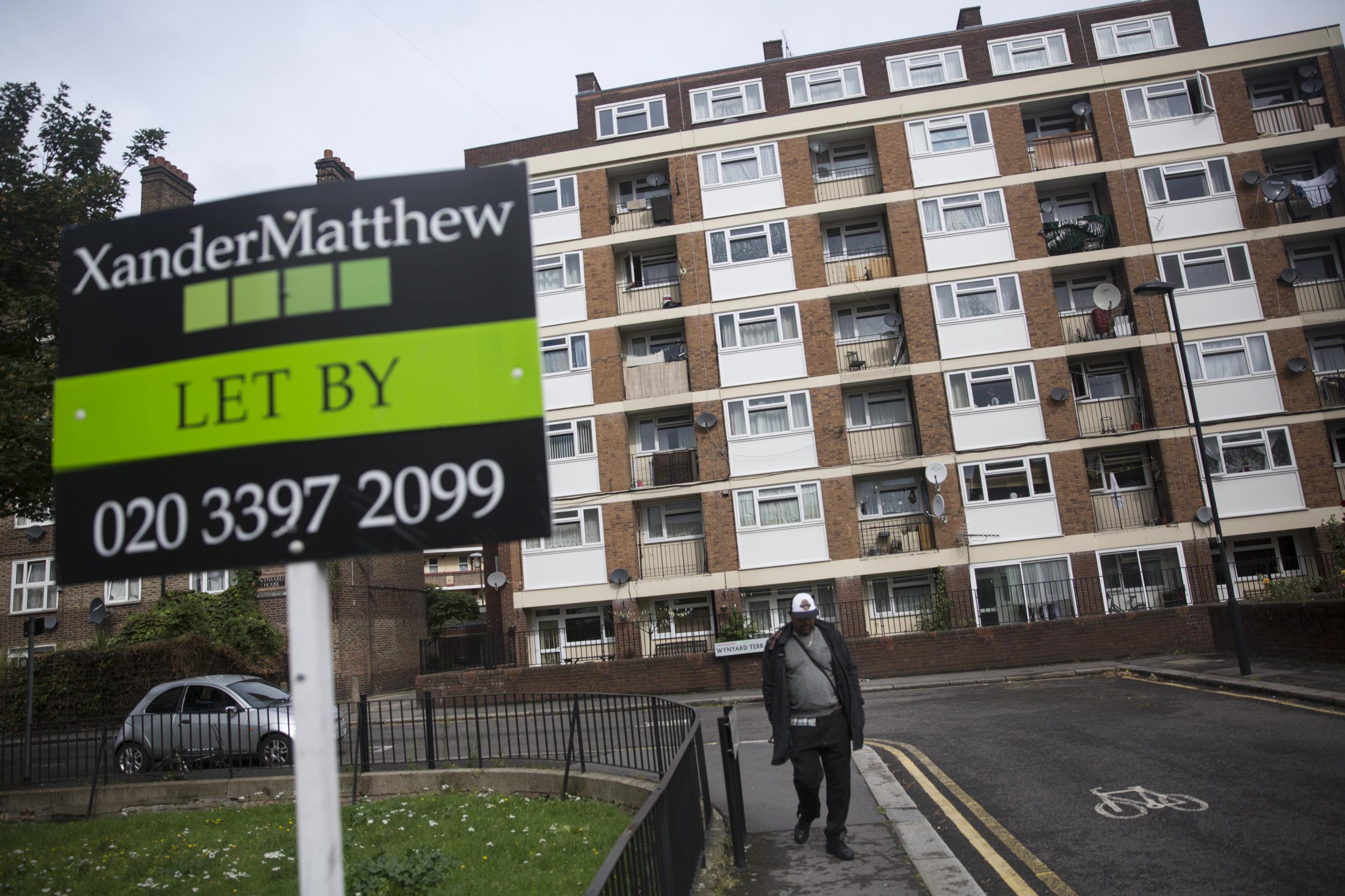This chart shows the real divide in Britain is not income but housing
New research shows how housing costs are crippling those who rent - and have risen by more than 20 per cent in twenty years

Do you have a job and own your own home? If so, only a tiny fraction of your income is thrown away on housing costs, regardless of whether you earn a lot or a little.
But if you rent privately, at least a quarter and as much as a third of your income is soaked up by housing costs, according to new figures released today and seen exclusively by The Independent.
New research published by the Resolution Foundation shows that the real divide in Britain today is between the owners and the renters.
Those on high incomes – that’s the richer half of the population, i.e. singles earning over £30,000 or couples earning more than £40,000 – nevertheless sacrifice 26 per cent of their income every year if they have a rent to pay, while their home-owning counterparts pay just 2 per cent of their cash towards housing.
Brits on ‘low or middle’ incomes – that’s roughly those earning over £10,000 – lose as much as 34 per cent in renting costs, while others on the same incomes pay just 4 per cent of their earnings towards housing if they own their home.
The gulf also applies to Brits on benefits, with home-owning benefit recipients sacrificing the comparatively small sum of 18 per cent of their income to cover their home, while renters receiving benefits lose 30 per cent.
Those on social housing are relatively protected, with social tenants losing between 15 and 23 per cent to housing costs, but poorer Brits with mortgages are being as hamstrung by costs as renters.
While high-earners with mortgages are only paying 20 per cent of their income toward their mortgage, the poorer are paying 28 per cent – and those on benefits are losing more than half their income.
The research also reveals that, over the past twenty years, costs have risen by at least 20 per cent for every income group bar employed homeowners – whose housing costs could scarcely fall further.
Costs have also fallen for private renters on benefits, who now pay only twice as much as social tenants on benefits, rather than 3 1/2 times as much (not necessarily a bad thing when who gets a council house is such a lottery).
The full report, to be published in the coming weeks, will show that low-earning Brits renting in London pay even more than 34 per cent.
For many younger and poorer workers in the capital, housing costs soak up close to 50 per cent of their income, leaving little for anything else.
If you’re one of them, you could always move to Berlin (where rents is about half the price) – so long as Britain remains a member of the EU.
Join our commenting forum
Join thought-provoking conversations, follow other Independent readers and see their replies
Comments
Bookmark popover
Removed from bookmarks